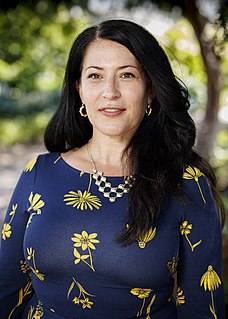A Quote by James Arthur
I wrote the poems in Charms Against Lightning one by one, over almost a decade, and I did not write them toward any theme or narrative. But once I really got serious about putting together a book, I began to see that in fact there were themes across the poems, if only because my own obsessions had brought me back time and again to the same ground. I realized that any ordering of the poems would determine how those themes developed over the manuscript, and how the collection's dramatic conflicts were resolved.
Quote Topics
About
Across
Again
Against
Almost
Any
Back
Because
Began
Book
Brought
Charms
Collection
Conflicts
Decade
Determine
Developed
Did
Dramatic
Fact
Got
Ground
Had
How
I Realized
In Fact
Lightning
Manuscript
Me
My Own
Narrative
Obsessions
Once
Only
Ordering
Over
Own
Poems
Putting
Realized
Really
Resolved
Same
See
Serious
Them
Theme
Themes
Those
Time
Together
Toward
Were
Would
Write
Wrote
Related Quotes
When Emily Dickinson's poems were published in the 1890s, they were a best-seller; the first book of her poems went through eleven editions of a print run of about 400. So the first print run out of Boston for a first book of poems was 400 for a country that had fifty million people in it. Now a first print run for a first book is maybe 2,000? So that's a five-time increase in the expectation of readership. Probably the audience is almost exactly the same size as it was in 1900, if you just took that one example.
I believe it's impossible to write good poetry without reading. Reading poetry goes straight to my psyche and makes me want to write. I meet the muse in the poems of others and invite her to my poems. I see over and over again, in different ways, what is possible, how the perimeters of poetry are expanding and making way for new forms.
I have been writing. Even when I intend not to write, I find myself writing. I'm currently in a place where I should be putting together the fifth book, but then more poems are coming. It's exciting and somewhat daunting. You know how we are when a new book of poems is at last coming together - all frenzy, distraction, and bounty? It's as if I've turned into summer itself.
I know that one of the things that I really did to push myself was to write more formal poems, so I could feel like I was more of a master of language than I had been before. That was challenging and gratifying in so many ways. Then with these new poems, I've gone back to free verse, because it would be easy to paint myself into a corner with form. I saw myself becoming more opaque with the formal poems than I wanted to be. It took me a long time to work back into free verse again. That was a challenge in itself. You're always having to push yourself.
If you can find two poems in a book, it could be a pretty good book for you. You know, two poems you really like. There are some poets who are fairly big names in contemporary poetry and who write a book and I might like three or four poems in the book, but the rest of them don't appeal to me personally; but I think that's the way it really ought to be. I think it's really a rare thing to like everything that somebody has written.
[Kenneth Koch] taught children in public schools in New York City to write poems and told them down worry about rhyming, don't worry about any of that stuff. You know, write a poem where you mention three colors and make it five lines - or he would just give them, you know, little strategies. And, man, they wrote some great poems.



































